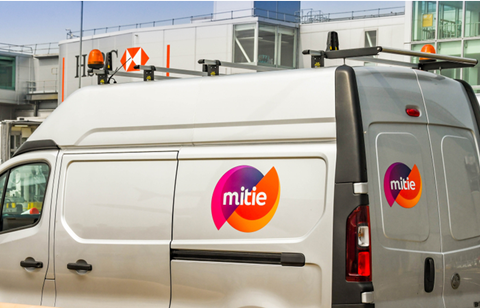
Strategic outsourcing and energy services business Mitie has tight margins, but still sees the importance of protecting and supporting front-line staff during difficult periods, meaning it has to focus on benefits that are affordable for the business, but make a real difference to employees.
Jasmine Hudson, chief people officer at Mitie, says: “Employees want more than just the basics; they want wellbeing, flexibility off the back of Covid-19, and then also social value and the environmental angle.
“People make a real choice now about what kind of [business] they want to work for, and when that's added that to the cost-of-living issues, they're looking for great pay, and the wider benefits package is becoming more and more important.”
Mitie has 68,000 employees across a wide spectrum of roles and responsibilities, 40,000 of which are front-line, and 18% of which are paid below the real living wage. This is something the business is looking to reduce, but in the meantime, it has focused on helping those most likely to be struggling with the cost of living.
“We’ve had to really think about it from a total reward perspective,” Hudson explains. “People are struggling, and the financial stress is impacting mental health, so you see the wellbeing knock-on effect and the attrition spike as well. Some [employers] can give big bonuses, but even if we gave everybody £100, after tax it would have a lower impact.”
To this end, in 2022 Mitie introduced a winter support package, particularly aimed at those paid under £30,000 per annum. This included bonuses in January 2023 which were weighted towards the lower paid.
Front-line Mitie employees also received £50 vouchers in 2022, while the business introduced a bikes-for-work scheme that was based on net pay, in order to be available to lower earners, who are often excluded from salary sacrifice arrangements that might cause them to dip below minimum wage.
The vouchers had the added effect of driving traffic to the employer’s discounts website, so that once the £50 was spent, they had raised awareness and engagement with other offers available to staff.
Mitie also enlisted Salary Finance to provide staff with flexible access to their pay, meaning that when unexpected expenses or high bills hit, they are able to draw down without resorting to high interest loans, or missing payments. This means that lower paid employees in particular can shape their pay schedule more effectively around their needs, at a time when this is more important than ever.
The business also provides staff at all levels with access to life assurance and a virtual GP, extended to household members, as well as a free share scheme that is weighted so that the lower an individual earns, the more shares they can access.
“The benefits system has grown up as this kind of hierarchy, where the higher you are, the more you get,” says Hudson. “We need to rethink that, and that is what I challenge my reward team to do.”
For Mitie, this is about redressing financial imbalances, as well as celebrating the people without whom the business could not function.
“If the business is going to be prosperous because of our people, let's give them a share of that success,” Hudson says.
“We ran a ‘Front-line Heroes’ campaign for about a year during Covid-19 to reward and recognise them, and we would never under-appreciate the work that they do. These people are working day in, day out, going the extra mile to make us a profitable business, and we wouldn't be able to do anything without our front-line workers.
“We don't sell a product, we sell a service, and it's all driven by our people.”
How is the cost-of-living crisis affecting what employees want from their benefits packages?











